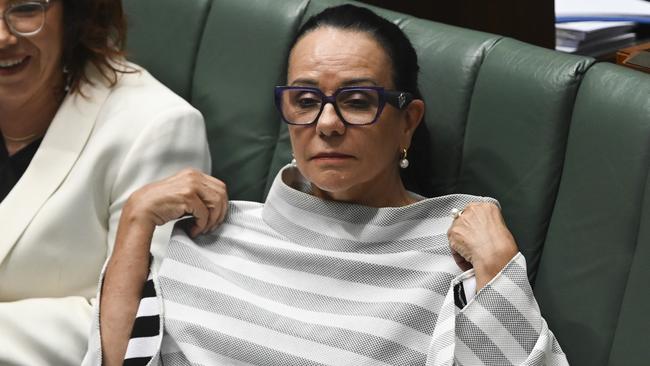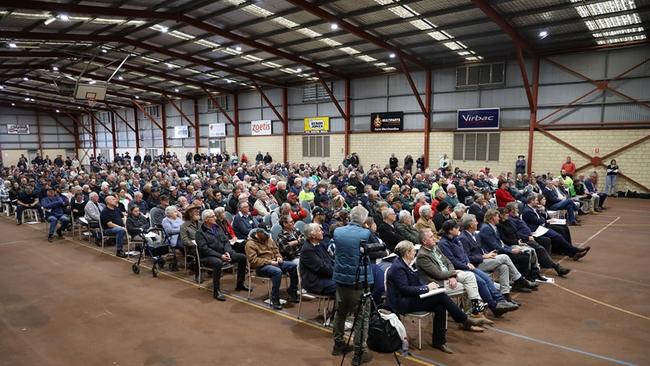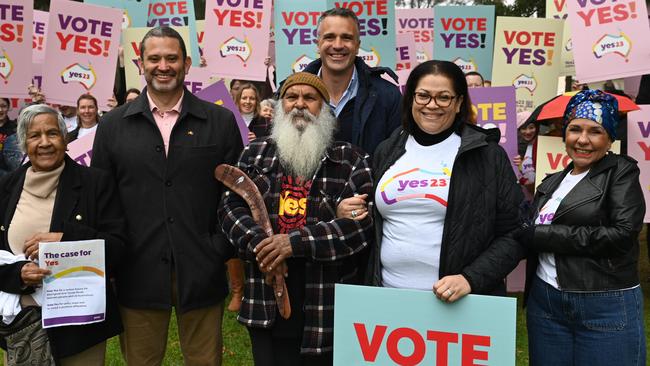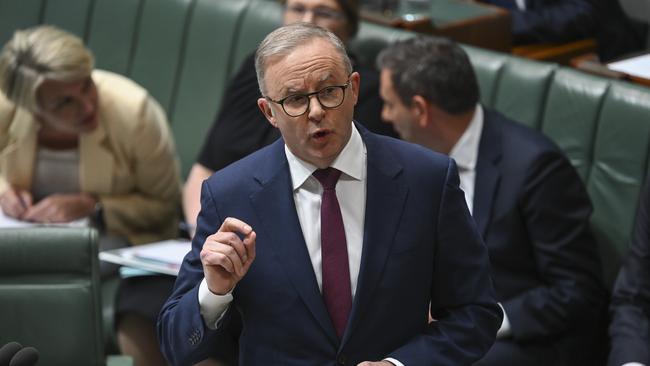James Morrow: Labor ties itself in knots over Voice, truth and treaty
For a simple proposition, the Albanese government sure is making the Voice to Parliament complicated as even its own Indigenous Affairs minister won’t answer a basic question, writes James Morrow.
Opinion
Don't miss out on the headlines from Opinion. Followed categories will be added to My News.
For a simple proposition, the Albanese government sure is making the Voice to Parliament complicated.
Just look at how Labor has tied itself into knots trying to put distance between the Voice and their embrace of the Uluru Statement from the Heart, with its voice-treaty-truth roadmap that implies a lot more than just a simple request to listen to the needs of Aboriginal Australians.
In parliament Tuesday, Labor’s Indigenous Australians minister Linda Burney was twice asked if the government still supported a Makaratta, or truth-telling, commission.
The best she could manage was a weak re-telling of what appeared to be a pre-prepared answer.
“The 2023 referendum is about constitutional recognition through voice,” she said.
Pressed further, and after points of order demanding she answer the question, Burney bumbled along explaining that “members of the Voice will be chosen and serve for a period … it is about recognition and listening.”

“I say vote yes and make a positive difference,” she concluded one of her turns at the dispatch box, with the House no clearer on what the government’s final position on Makaratta was or is or will be.
As the “Yes” campaign prepares for a big push to convince increasingly sceptical Australians that the Voice is barely more than an act of effective symbolism that won’t affect most of us one way or the other, moments like this continue to raise doubts.
Particularly when the government also seems equivocal about ruling out the sort of Indigenous heritage regime which has tied Western Australia into knots, with its demands that landholders seek permission of local Aboriginal groups before digging a hole deeper than 50cm or moving more than 20kg of soil.

Environment minister Tanya Plibersek was at pains to explain that a state law such as what is causing so much consternation in WA does not, indeed cannot, have force nationally.
But, many in the Coalition noted, she also seemed at least equivocal about ruling out a similar regime being rolled out by the Commonwealth.
And herein lies a major problem for Labor and the “Yes” campaign.
Their state counterparts, declaring “I’m helping!” like the Simpsons’ Ralph Wiggum, are doing the “No” case’s job for them by showing what the complex implications of supposedly simple requests can be.
In Queensland, Labor has budgeted $300 million for treaty – the second request of the Uluru Statement as part of a reparations program that could lead to future payouts in the tens of millions of dollars or more.
Other states that have gone down this road have been less explicit.
But in Victoria, the website for their official treaty process concedes that it “provides a path to negotiate the transfer of power and resources for First Peoples to control matters which impact their lives’’.

Put aside the weird borrowing of a Canadian form of words (“first peoples” and “first nations” are entirely North American terms) this can only be seen as a transfer of money and sovereignty.
Particularly for recent migrants, the idea that they might be asked to foot the bill for something that happened ages ago and involved people with whom they have absolutely no connection, this will surely be hard to get over the line.
And as far as truth telling is concerned, note that NSW – headed by the normally sensible Chris Minns – has just announced a revamp of the school curriculum to take into account Aboriginal perspectives on being “colonised”.
Any parent who has put a child through NSW public schools which are subject to the Australian Curriculum’s cross curricular priorities will attest that of all the things that afflict our classrooms, a lack of Aboriginal perspectives is not one of them.

None of this, of course, has anything to do with true reconciliation, which presumably will occur on a day when special curriculums and reparations and voices are no longer necessary, along with all the jobs of those who administer them.
Non-Aboriginal Australians are overwhelmingly of good will to those who are descended from those who lived here before the British arrived.
Farmers in WA say they absolutely want to see Aboriginal Australians succeed but they don’t want their businesses held hostage by complex rules. And through it all, the government – and the “Yes” case with all its corporate millions and moral cudgels – is muddying the waters.
Peter Dutton told party room colleagues on Tuesday: “The government clearly has to implement the whole of the Uluru Statement from the Heart.
“We all want better outcomes for Indigenous Australians but the voice is no guarantee that this will be delivered, and may indeed be a risk to effective government in the future.
“What the government’s proposing is not in our country’s best interests.”
Compared to the government’s question time gymnastics, it’s a pretty simple proposition.





